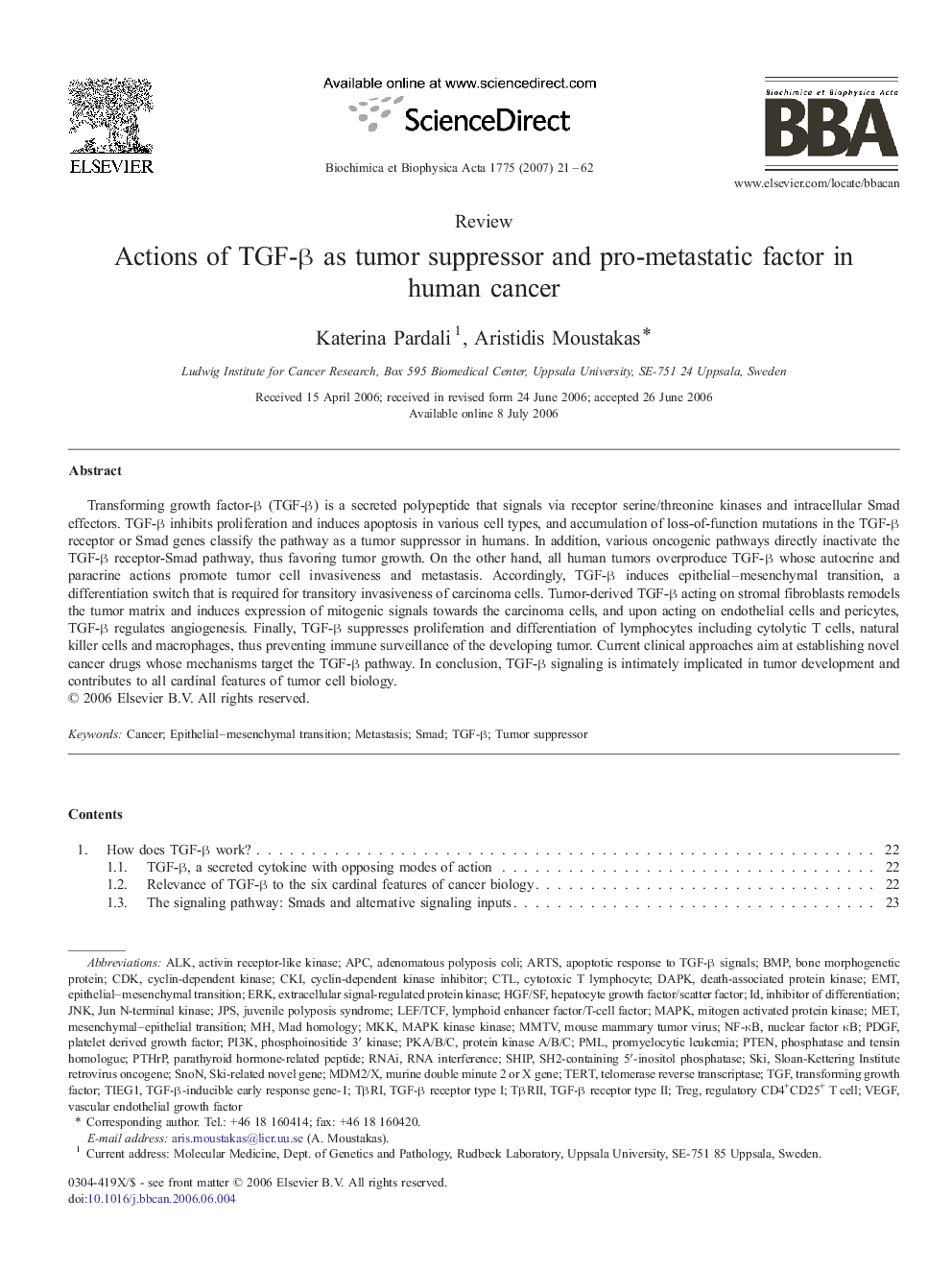| Article ID | Journal | Published Year | Pages | File Type |
|---|---|---|---|---|
| 2101190 | Biochimica et Biophysica Acta (BBA) - Reviews on Cancer | 2007 | 42 Pages |
Transforming growth factor-β (TGF-β) is a secreted polypeptide that signals via receptor serine/threonine kinases and intracellular Smad effectors. TGF-β inhibits proliferation and induces apoptosis in various cell types, and accumulation of loss-of-function mutations in the TGF-β receptor or Smad genes classify the pathway as a tumor suppressor in humans. In addition, various oncogenic pathways directly inactivate the TGF-β receptor-Smad pathway, thus favoring tumor growth. On the other hand, all human tumors overproduce TGF-β whose autocrine and paracrine actions promote tumor cell invasiveness and metastasis. Accordingly, TGF-β induces epithelial–mesenchymal transition, a differentiation switch that is required for transitory invasiveness of carcinoma cells. Tumor-derived TGF-β acting on stromal fibroblasts remodels the tumor matrix and induces expression of mitogenic signals towards the carcinoma cells, and upon acting on endothelial cells and pericytes, TGF-β regulates angiogenesis. Finally, TGF-β suppresses proliferation and differentiation of lymphocytes including cytolytic T cells, natural killer cells and macrophages, thus preventing immune surveillance of the developing tumor. Current clinical approaches aim at establishing novel cancer drugs whose mechanisms target the TGF-β pathway. In conclusion, TGF-β signaling is intimately implicated in tumor development and contributes to all cardinal features of tumor cell biology.
